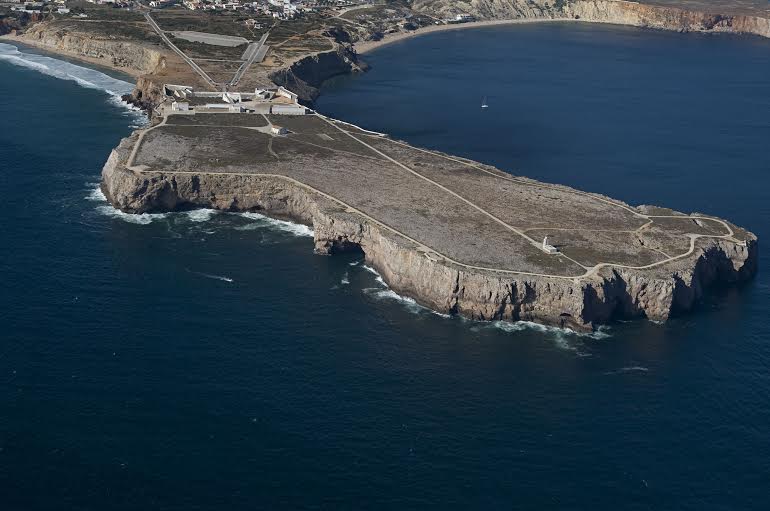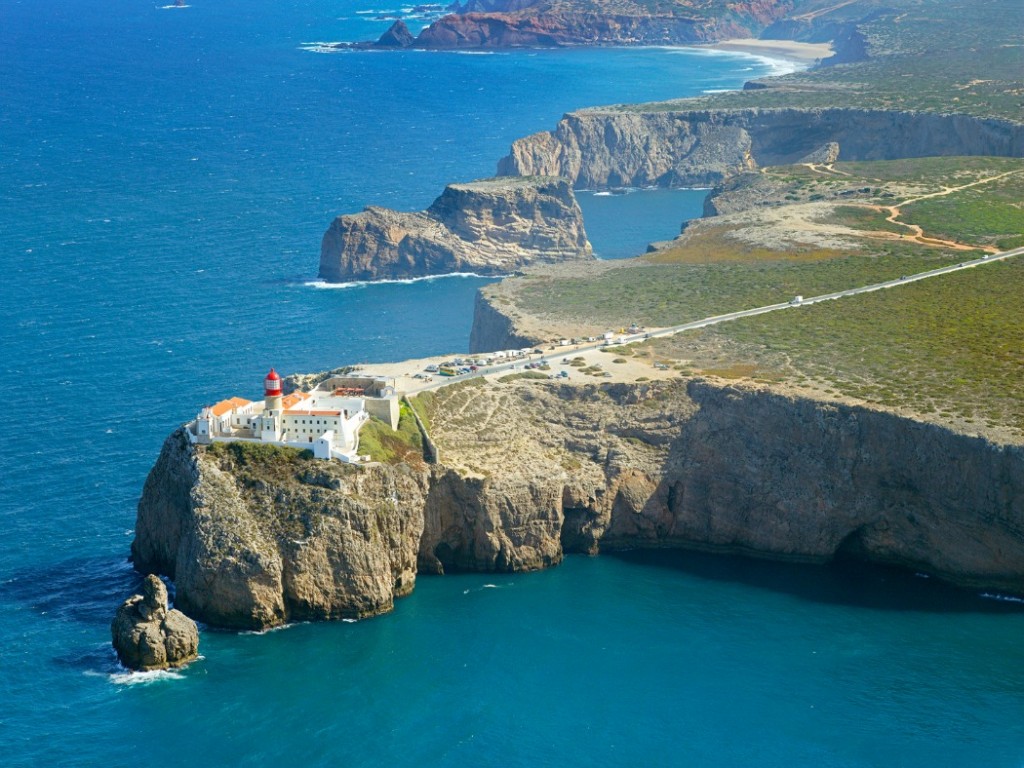 The "Places of Globalization" application, which aims to enhance the legacy of Infante D. Henrique in the Algarve and integrates the municipalities of Vila do Bispo, Lagos, Aljezur, Monchique and Silves, was also included in the indicative list of Portugal for World Heritage, released on Monday by the UNESCO National Commission.
The "Places of Globalization" application, which aims to enhance the legacy of Infante D. Henrique in the Algarve and integrates the municipalities of Vila do Bispo, Lagos, Aljezur, Monchique and Silves, was also included in the indicative list of Portugal for World Heritage, released on Monday by the UNESCO National Commission.
Presented at the end of 2015, the candidacy of "Places of Globalization" thus integrates the indicative list of 22 properties and "now gathers all the necessary conditions for the candidacy for World Heritage", stress the president of the Tourism Region of Algarve and the regional director of Culture, responsible for the two main entities promoting the application.
The application, which seeks to recognize the universal value of the places associated with the Expansão Marítima Portuguesa voyages, integrates heritage elements, but also the history associated with the places.
The Algarve is home to several places, symbols, myths and characters that it is essential to safeguard in the narrative of the history of Portugal and the world. These Places of the First Globalization, which relate to the opening period of the maritime expansion of trade routes, are at the genesis of a new way of conceiving the world and relations between peoples and thus hold a universal value to be preserved. These places star in launching European civilization on its way to the global project that would define the modern world and are considered starting points for the transformation of the world in the current global era.
A review of the places initially included limited the application to the municipalities of Vila do Bispo, Lagos, Aljezur, Monchique and Silves. «The Archipelago of Madeira and the Archipelago of the Azores, as well as Cape Verde, Ceuta, Mauritania and Morocco would be other territories to integrate the candidacy in a true universal network of knowledge and discovery», but, for now, they were left out.
Desidério Silva and Alexandra Gonçalves stress, in a statement, that «the work, now started, will continue to lack the support of all to reach the desired result of inscription on the UNESCO World Heritage list».
 The Tourism Region and the Regional Directorate of Culture had the support of a network of partners who mobilized around the application and which made this result possible, including the University of Algarve, the Regional Directorate of Culture of the Azores and the Directorate Madeira Cultural Region and the Algarve municipalities involved (Vila do Bispo, Lagos, Aljezur, Monchique, Silves, Portimão, Tavira and Castro Marim).
The Tourism Region and the Regional Directorate of Culture had the support of a network of partners who mobilized around the application and which made this result possible, including the University of Algarve, the Regional Directorate of Culture of the Azores and the Directorate Madeira Cultural Region and the Algarve municipalities involved (Vila do Bispo, Lagos, Aljezur, Monchique, Silves, Portimão, Tavira and Castro Marim).
Those responsible also highlight the scientific support for the candidacy by researcher and university professor Rui Loureiro and the special attention of the de Guilherme d'Oliveira Martins and Lídia Jorge, godfathers of this project.
The Algarve had, between Lagos and Sagres, “the first pier” of the voyages of discovery, knowing from this territory the first major transnational contacts with the African reality and the opening to a “new world”.
From the XNUMXth century onwards “a mosaic of cultures was established, a dynamic society of cultural, linguistic, religious, technical, commercial and political complementarity. Values, ideas and practices arising from links with other peoples generated adequate solutions to the multiple problems that African societies have faced in the centuries-long course of their history».
O project aims promote values of tolerance, increase knowledge about heritage and cultural diversity, promote the preservation of historical heritage, as well as foster better relations between peoples.
The RTA, whose mission is centered on the tourist development of the region, heads this proposal, taking into account the central role of tourism in the preservation of the cultural, natural, material and immaterial heritage.
Among the 22 properties included in this new Indicative List of Portugal to World Heritage, in addition to the Algarve's candidacy «Places of Globalization», are also included the Mértola candidacies, the Southwest Coast and the Cork Oak Mountains Cultural Landscape, to mention only those most connected to the South of the country.
Dating from 2004 the previous Indicative List, the UNESCO National Commission started, at the end of 2013, the process leading to its updating, in the period coinciding with Portugal's mandate in the World Heritage Committee (2013-2017).
Conducted by the UNESCO National Commission, the entity responsible for monitoring the UNESCO Convention for the Protection of the World Cultural and Natural Heritage in our country, the process arose from the UNESCO recommendation that the Indicative Lists of States party to the World Heritage Convention be updated every 10 years. The Indicative Lists are an indispensable prerequisite for the nomination of World Heritage properties.
The updated Indicative List includes the following 22 Goods:
 Águas Livres Aqueduct
Águas Livres Aqueduct
Lisbon's Baixa Pombalina
Portuguese Pilgrimage Paths to Santiago de Compostela
Guimarães Historic Center and Leather Zone (extension)
Roman Industrial Complex for Salting and Preserving Fish in Tróia
Set of Architectural Works by Alvaro Siza in Portugal
south west coast
Desert of the Barefoot Carmelites and the Palace Hotel in Bussaco
Mid-Atlantic Ridge
Calouste Gulbenkian Foundation headquarters and park in Lisbon
Raia bastioned fortresses
Iberian Peninsula Dinosaur Icons
wild islands
Taken from Madeira
Historic Lisbon, Global City
Places of Globalization
Mértola
Montado, Cultural Landscape
National Palace and Tapada of Mafra and Jardim do Cerco
Magellan Route. first around the world
Bom Jesus do Monte Sanctuary in Braga
Vila Viçosa, Renaissance ducal village


















Comments